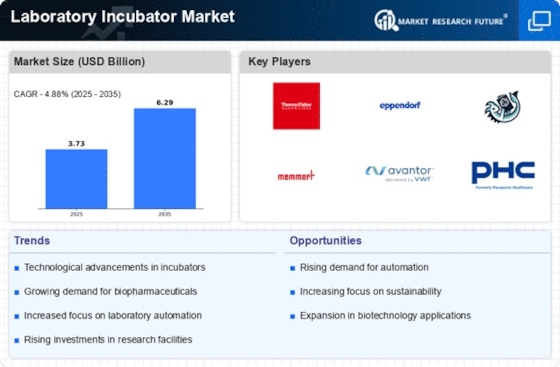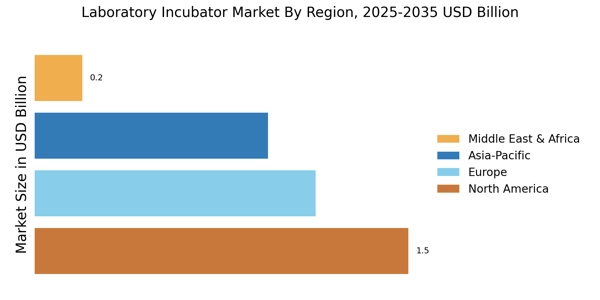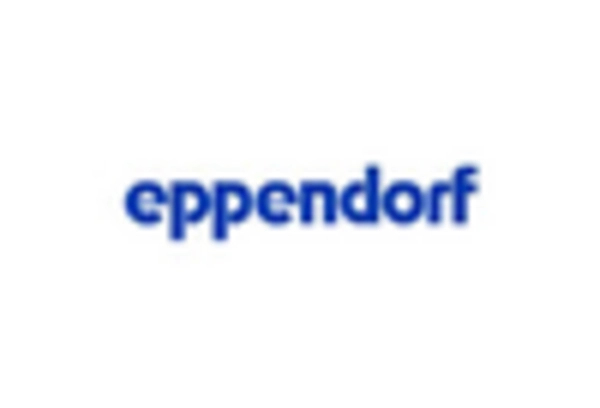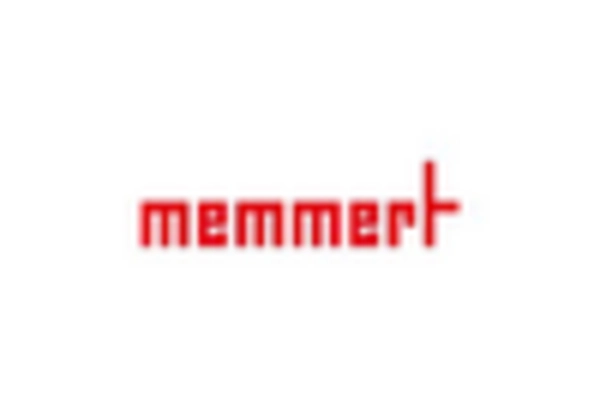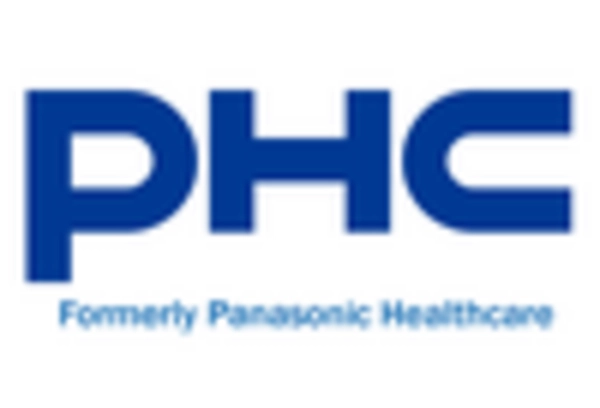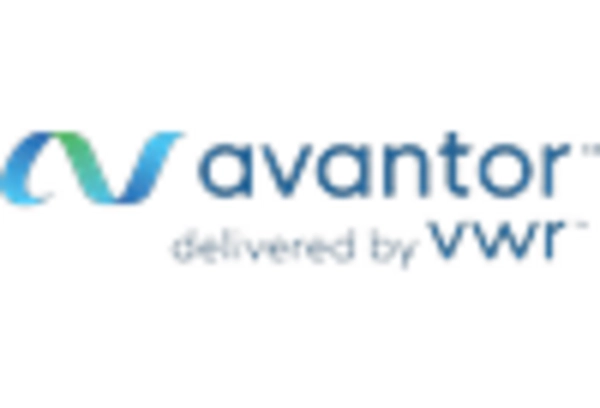Expansion of Biotechnology Sector
The Laboratory Incubator Market is poised for growth due to the rapid expansion of the biotechnology sector. As biotechnology companies emerge and evolve, the demand for specialized laboratory equipment, including incubators, is becoming more pronounced. These incubators are essential for various applications, such as genetic engineering, cell culture, and fermentation processes. The biotechnology sector is projected to witness significant growth, driven by advancements in genetic research and personalized medicine. This expansion creates opportunities for manufacturers of laboratory incubators to develop products that cater to the unique requirements of biotechnological applications.
The Laboratory Incubator Market is likely to benefit from this trend, as companies seek incubators that offer enhanced functionality and reliability to support their innovative research endeavors.
Growing Emphasis on Quality Control
Quality control remains a cornerstone of laboratory operations, and the Laboratory Incubator Market is responding to this need with innovative solutions. As industries such as pharmaceuticals and food production prioritize quality assurance, the demand for laboratory incubators that provide consistent and reliable conditions is on the rise. Regulatory bodies are imposing stricter guidelines, necessitating the use of advanced incubators that can maintain precise environmental parameters. This trend is reflected in the increasing adoption of incubators equipped with advanced monitoring and control systems. The Laboratory Incubator Market is likely to see growth as organizations invest in equipment that ensures compliance with quality standards, thereby enhancing product safety and efficacy.
The focus on quality control is expected to drive the development of more sophisticated incubators tailored to meet the specific needs of various industries.
Rising Demand for Biopharmaceuticals
The Laboratory Incubator Market is experiencing a notable surge in demand due to the increasing focus on biopharmaceuticals. As the biopharmaceutical sector expands, the need for precise temperature and humidity control in laboratory settings becomes paramount. This trend is driven by the growing prevalence of chronic diseases and the subsequent need for innovative therapies. According to recent data, the biopharmaceutical market is projected to reach substantial figures, indicating a robust growth trajectory. Consequently, laboratory incubators play a critical role in ensuring optimal conditions for cell culture and microbial growth, thereby supporting the development of new drugs and therapies. This rising demand for biopharmaceuticals is likely to propel the Laboratory Incubator Market forward, as laboratories seek advanced incubators to meet stringent regulatory requirements and enhance research outcomes.
Increased Research and Development Activities
The Laboratory Incubator Market is significantly influenced by the heightened research and development activities across various sectors, including healthcare, agriculture, and environmental science. As organizations invest more in R&D to foster innovation, the need for reliable laboratory equipment, such as incubators, becomes increasingly vital. This trend is particularly evident in academic and research institutions, where the focus on developing new methodologies and products drives the demand for advanced incubators. Recent statistics indicate that R&D spending has seen a consistent upward trend, suggesting a favorable environment for laboratory equipment manufacturers. The Laboratory Incubator Market stands to benefit from this increase, as researchers require sophisticated incubators to maintain controlled environments for experiments, ultimately leading to breakthroughs in various scientific fields.
Technological Innovations in Incubator Design
Technological innovations are reshaping the Laboratory Incubator Market, leading to the development of more efficient and user-friendly incubators. Recent advancements in automation, connectivity, and data management are enhancing the functionality of laboratory incubators. Features such as real-time monitoring, remote access, and integrated data logging are becoming standard in modern incubators, allowing researchers to optimize their workflows. The increasing integration of IoT technology in laboratory equipment is also contributing to this trend, enabling better control and analysis of experimental conditions. As laboratories strive for greater efficiency and accuracy, the demand for technologically advanced incubators is likely to rise. The Laboratory Incubator Market is expected to evolve in response to these innovations, with manufacturers focusing on creating incubators that meet the evolving needs of researchers and laboratories.
.png)

